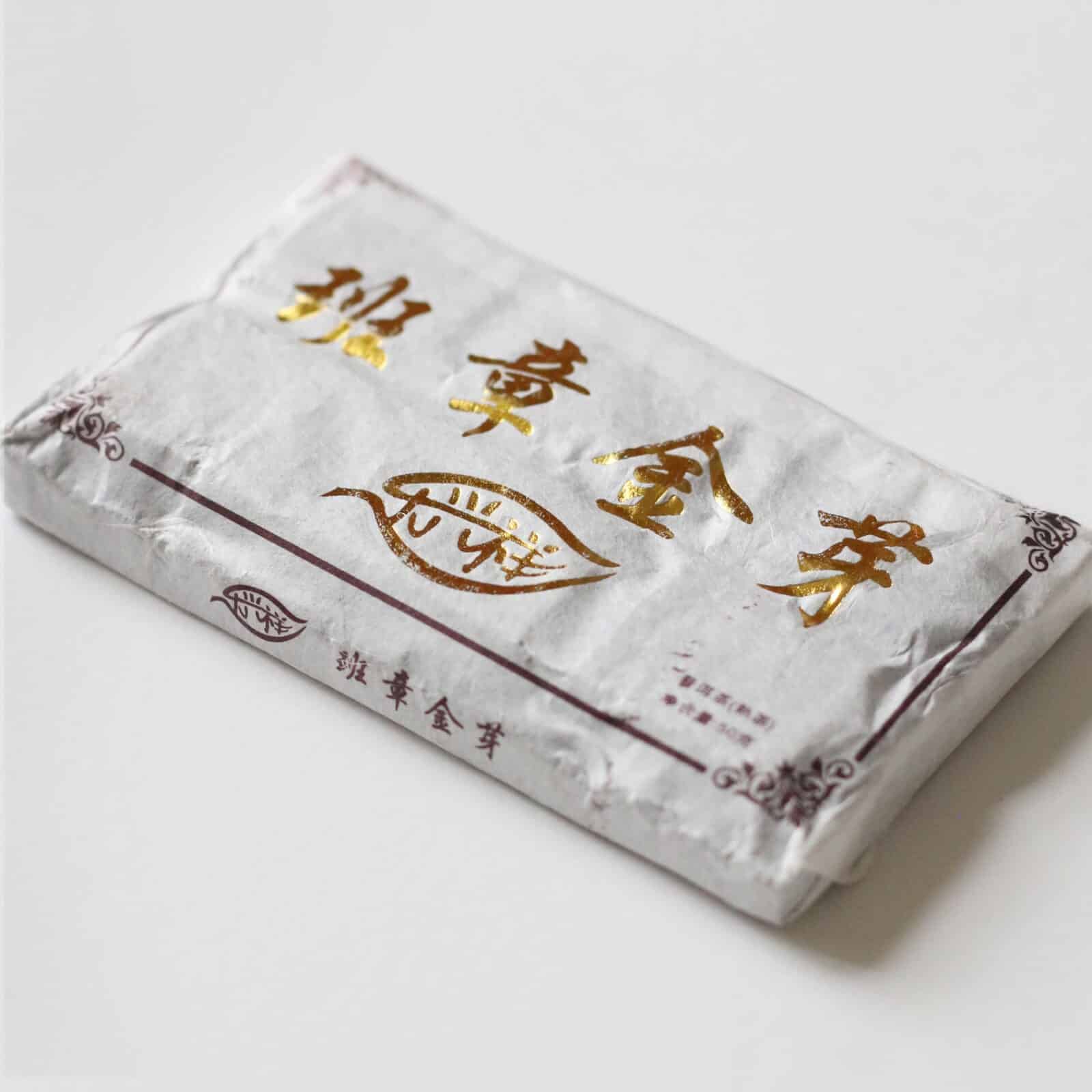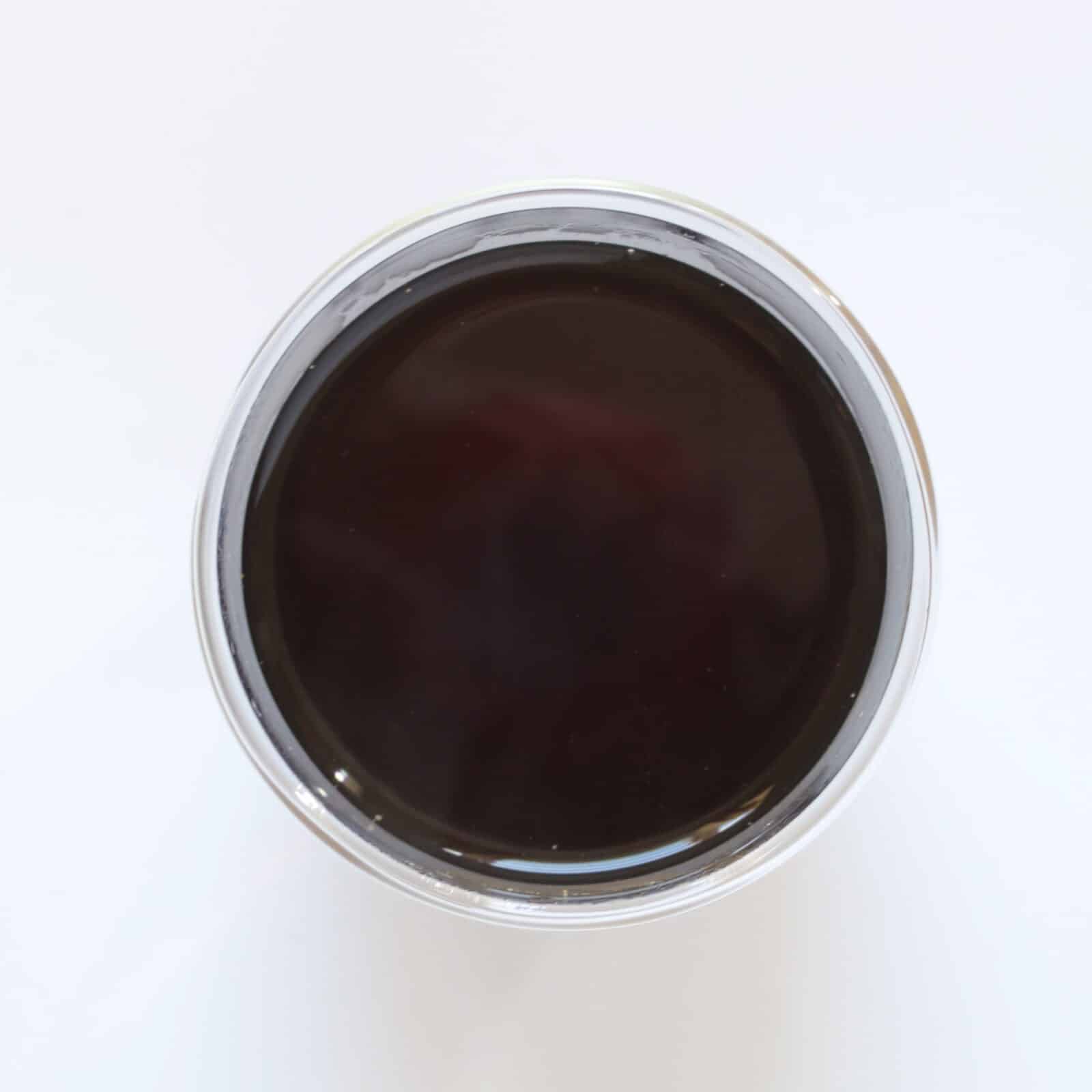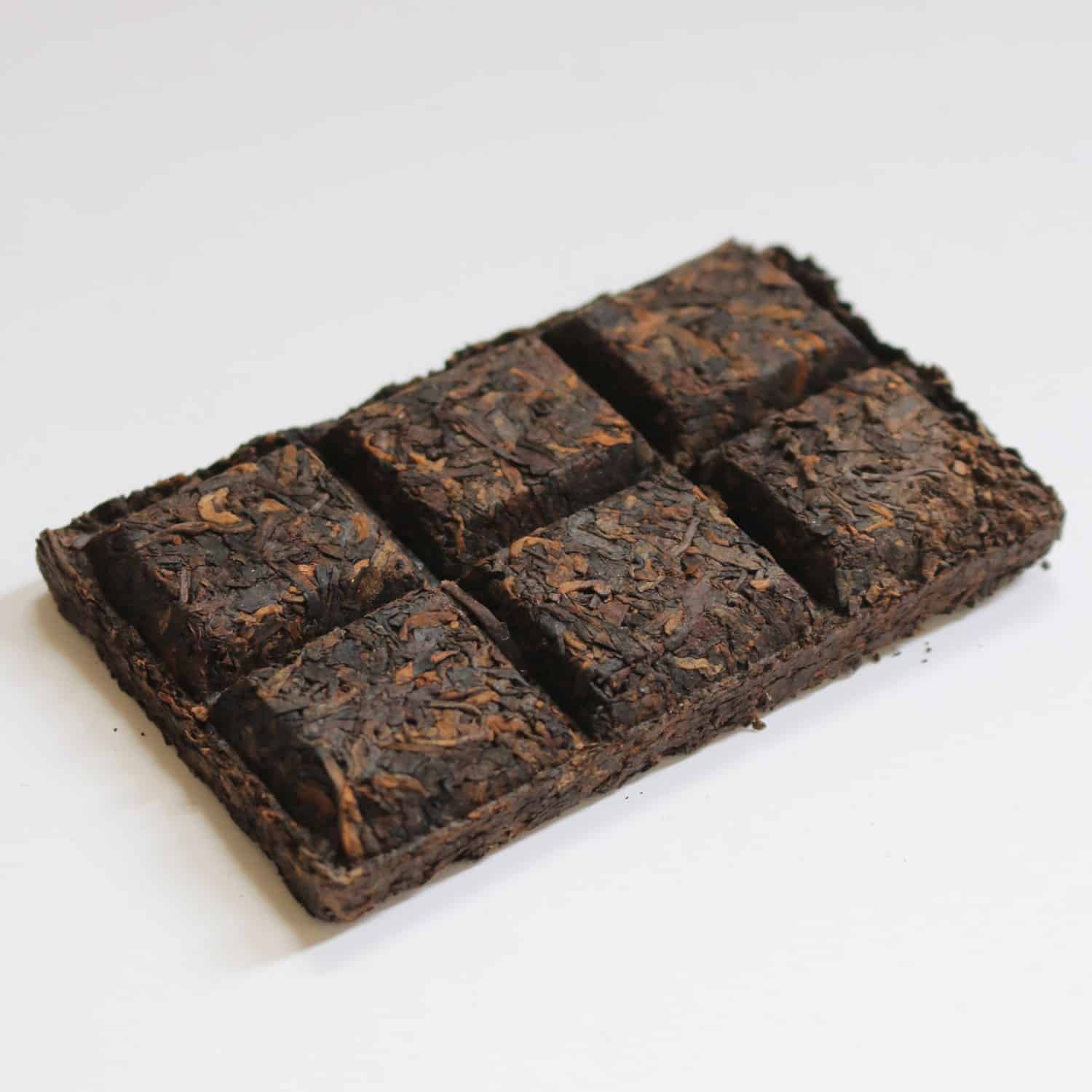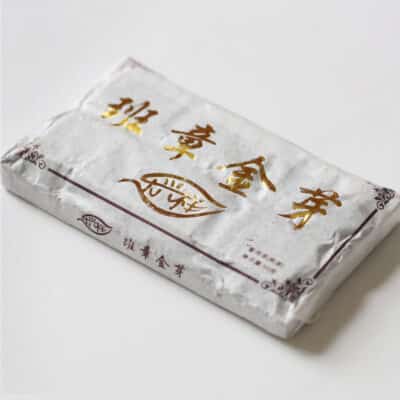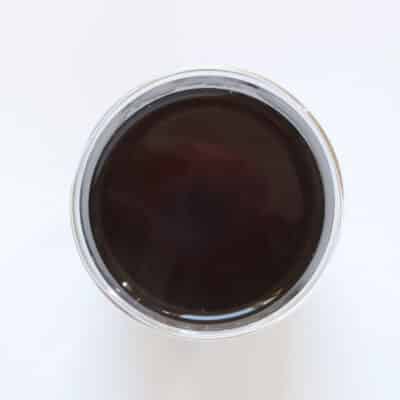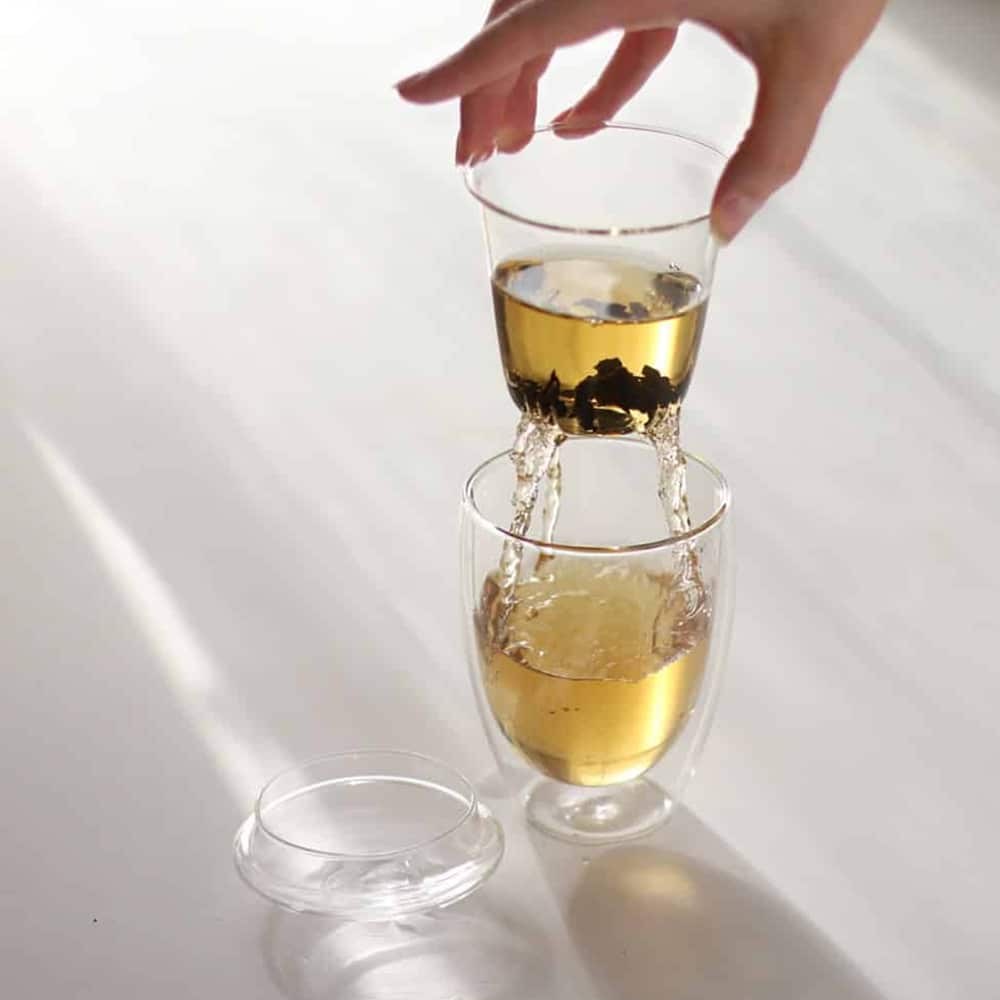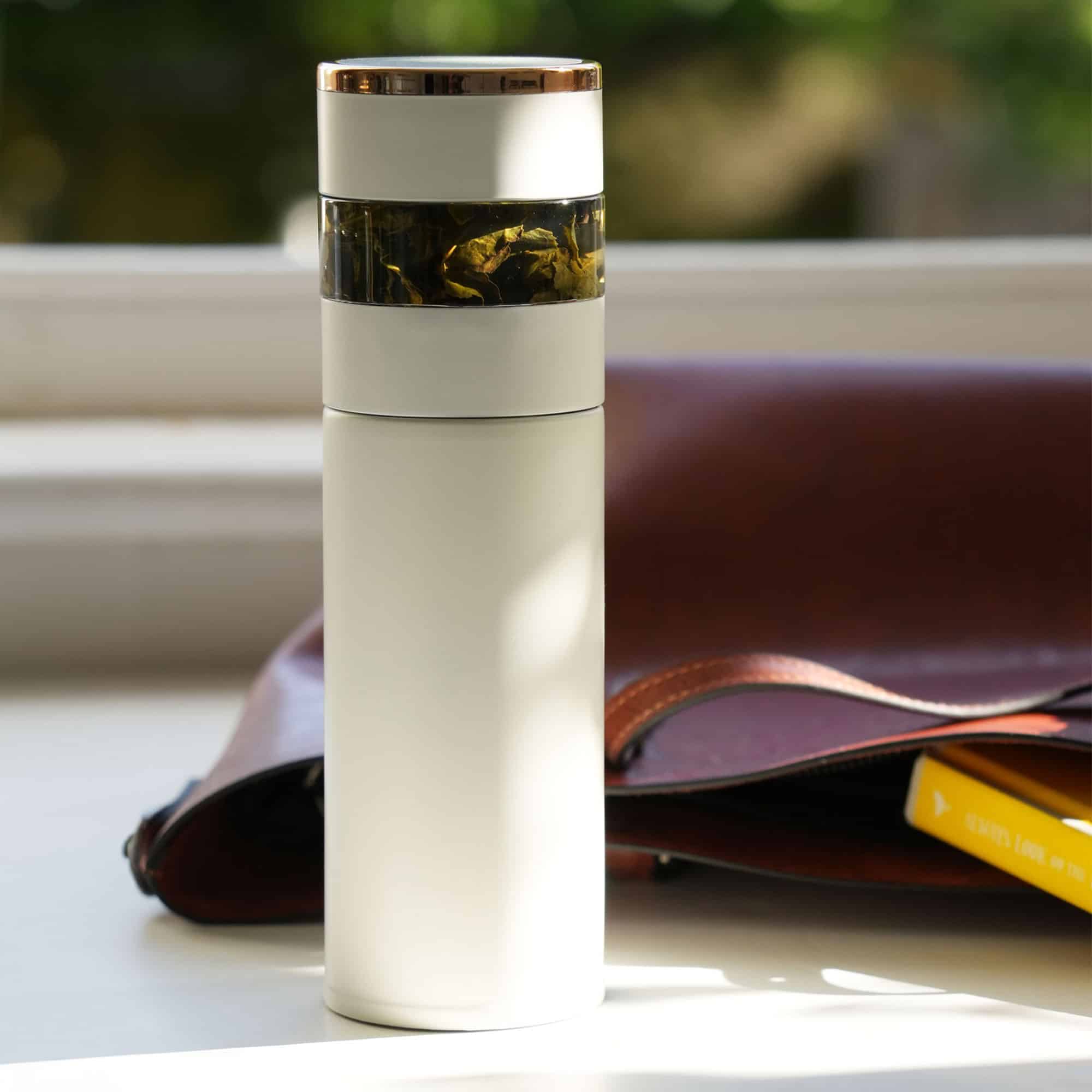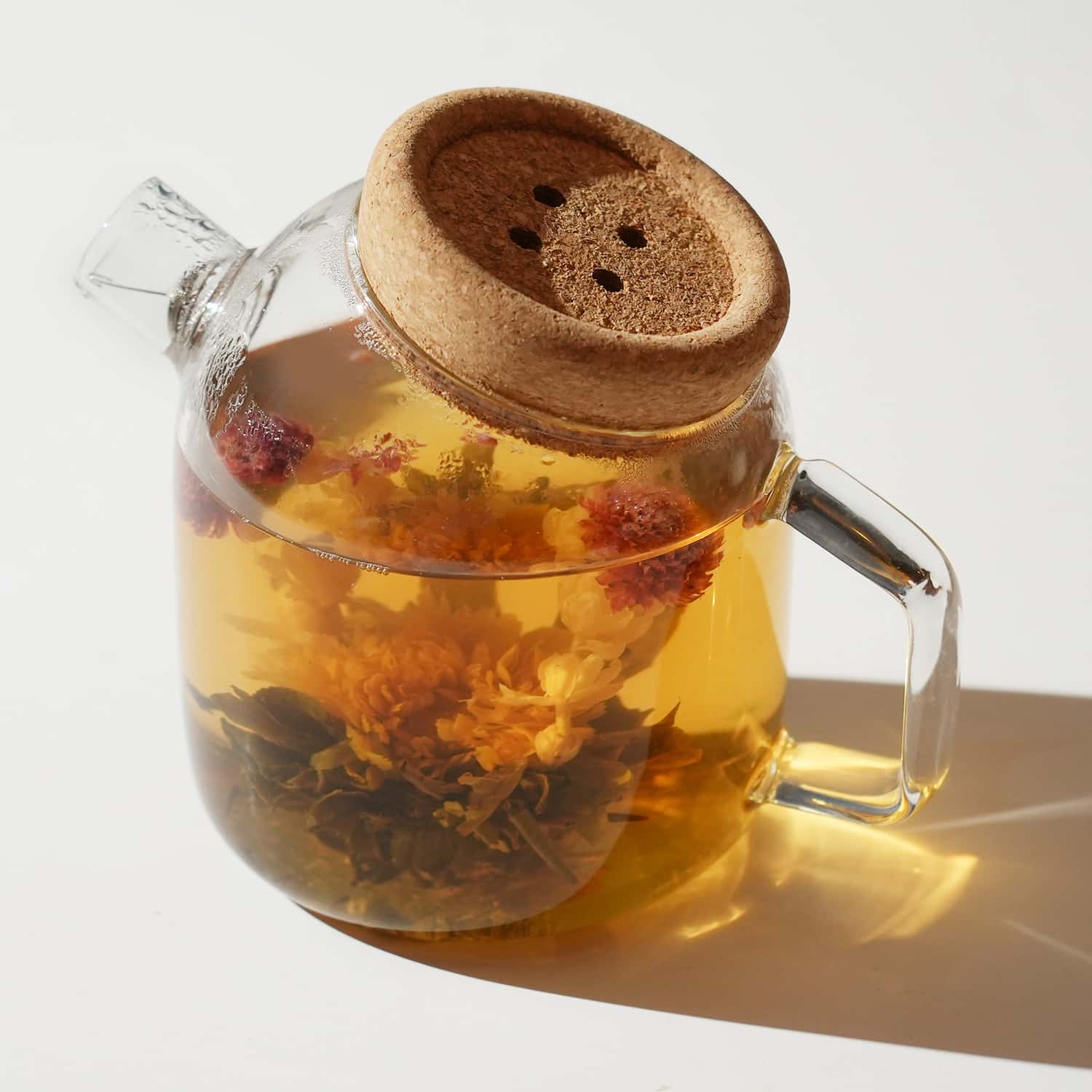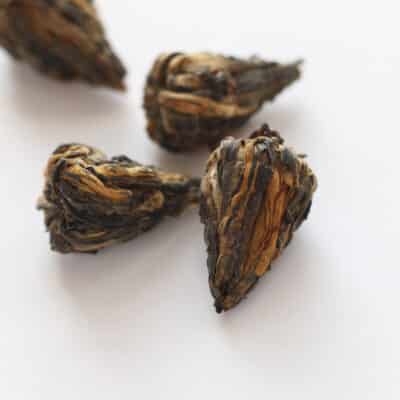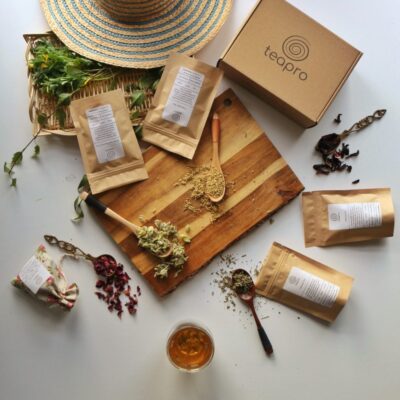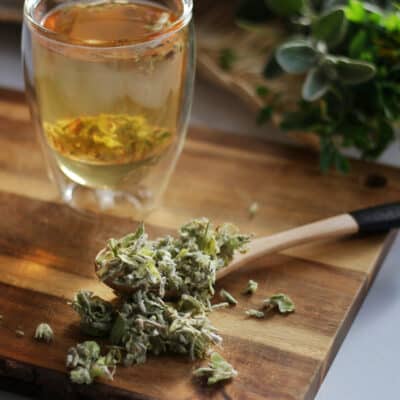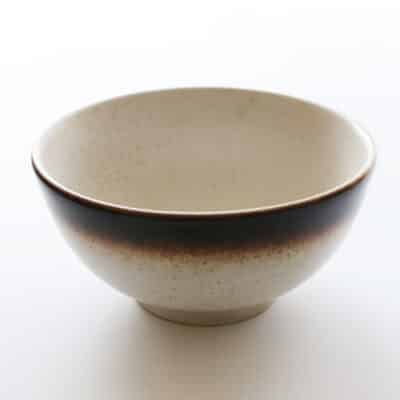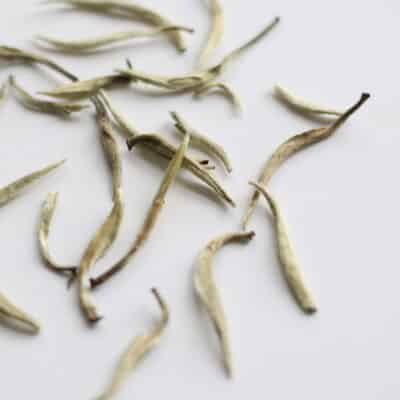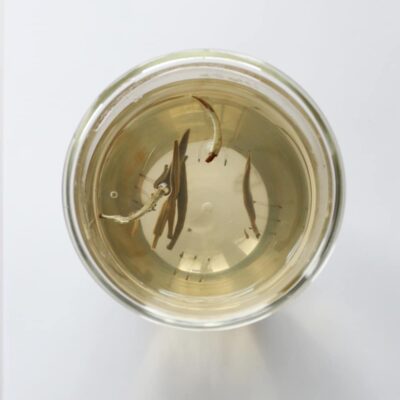2013 Golden Buds Ripe Pu-erh Brick
£12.00 – £125.00Price range: £12.00 through £125.00
Golden buds from the ancient tea trees of the hidden tea forest on Bulang Mountain pressed into a traditional pu-erh brick shape, reminiscent of tea dating back 1,700 years ago.
 This purchase will earn you 12-125 Points!
This purchase will earn you 12-125 Points! This purchase will earn you 12-125 Points!
This purchase will earn you 12-125 Points!2013 golden buds ripe pu-erh brick
🌱 origin: Yunnan Province, China
🌱 type: Pu-erh, Ripe
🌱 flavour: Smooth, Chocolate, Earthy
🌱 aroma: Musty, Dark, Mellow
🌱 year: 2013
Yunnan is the original home of aged tea and the techniques have been developing for hundreds or thousands of years.
Bordering Laos, Vietnam and Burma, the pressed pu-erh tea was used as currency for traders in the early 17th century.
The tea is known in the region as a weight loss and digestive aid and has become a favourite of loose leaf tea lovers around the world for its complex flavour and distinctive form.
The Golden Buds are a supreme quality young sweet bud, known for their delicate, sweet flavour. The ageing of the tea brick develops a deep, chocolatey and smooth flavour.
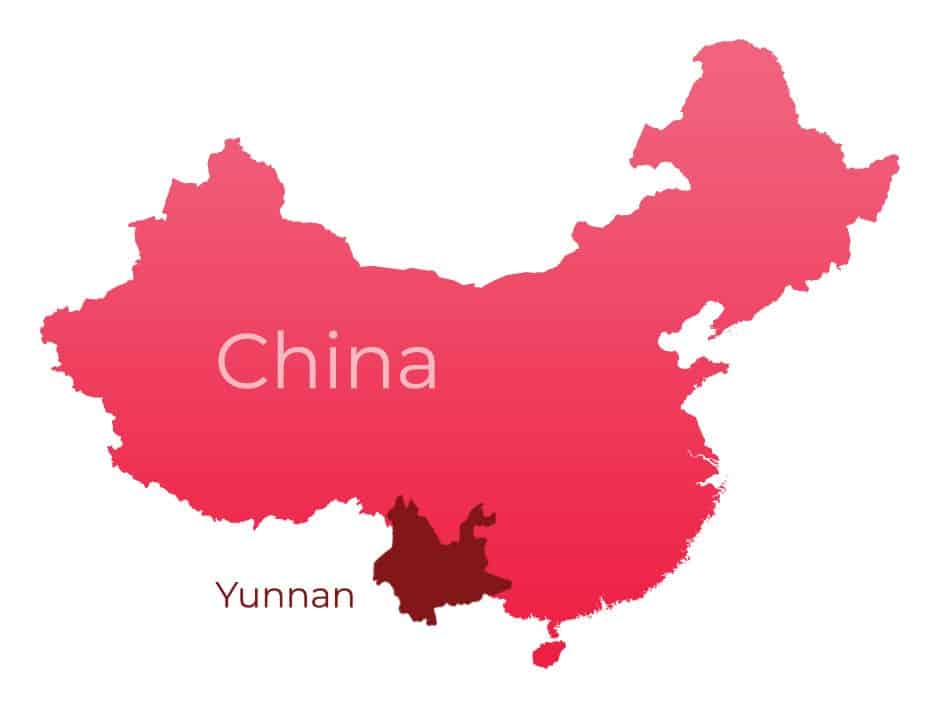
This is a great entry tea for Whiskey or Wine connoisseurs who appreciate the development of flavour with age.
Pu Erh Tea FAQs
Pu-erh tea is known for supporting digestion, improving gut health, and gently boosting energy. It contains probiotics and antioxidants formed during fermentation, which may help with metabolism, cholesterol regulation, and overall wellness when consumed regularly.
Pu-erh tea has a smooth, earthy flavor with notes of damp wood, cocoa, forest floor, or dried fruit. It’s low in bitterness and astringency, offering a rich, grounding experience that deepens over multiple infusions.
To brew Pu-erh tea the Western way, use about 4–5g of tea for every 300–500ml of water. First, give the leaves a quick rinse with hot water to awaken them. Then steep in near-boiling water (around 95–100°C) for 2–4 minutes. This method produces a fuller brew in one go, though you can re-steep the leaves once or twice depending on taste.
For the traditional gongfu-style method, use around 4–5g of tea for 100–150ml of water. Rinse the leaves briefly with hot water, then steep for 10–30 seconds in near-boiling water (95–100°C). Repeat for multiple infusions, gradually increasing steeping time with each round. This method brings out the evolving flavours of Pu-erh tea over many short brews.
Rinsing removes dust from storage and helps open up the leaves for a fuller, cleaner flavor. It also softens the tea’s initial edge and prepares the palate for a smoother first infusion.
Pu-erh tea contains a moderate amount of caffeine, typically ranging between 30–70mg per 240ml cup, depending on factors like age, type, and brewing method. This places it somewhere between green tea (around 20–45mg) and black tea (40–90mg) in caffeine content. In comparison, a standard cup of brewed coffee contains about 95–120mg. Pu-erh provides a gentler, more sustained energy lift without the sharp spikes or crashes often associated with coffee, making it a smoother option for focus and digestion.
Yes, Pu-erh tea can be safely enjoyed daily. Many people find it beneficial for digestion and mental clarity. As with any tea, moderation is key, and it’s best enjoyed after meals rather than on an empty stomach.
Pu-erh tea has traditionally been used to support digestion, especially after heavy meals. Its fermentation process may aid in fat metabolism and gut health, which can support weight management over time when combined with a healthy lifestyle.
Unlike most teas, Pu-erh undergoes microbial fermentation and aging. This process gives it a complex, earthy profile and unique health benefits. It’s one of the only teas that improves with time, offering a layered, evolving flavor experience.
The key difference lies in how they’re processed and how they age. Raw Pu-erh (also known as Sheng) is naturally aged over time, gradually developing deeper, more complex flavours. It starts out fresh, green, and slightly astringent, and mellows with age into something rich and smooth. Ripe Pu-erh (or Shou) undergoes an accelerated fermentation process, which gives it a dark, earthy profile from the start. Ripe Pu-erh tends to be smoother and more mellow early on, while raw Pu-erh offers a more dynamic flavour journey as it matures. Both are fermented teas, but their textures, aromas, and ageing processes are quite distinct.
new to loose leaf tea?
Elevate your tea experience with our easy-to-use, stylish teaware.
brewing loose leaf tea has never been easier
The most spectacular and effortless way to brew your loose leaf tea! The removable glass infuser allows for multiple re-steeps and helps to avoid over-brewing.
for teapros who are always on-the-go
Our Teapro infuser bottle is your perfect travel companion, ensuring maximum flavour, whilst keeping your tea hot or cold for up to 12 hours in a sleek & sustainable design.
share the joy of delicious loose leaf tea
Witness the mesmerising transformation of loose leaf tea as it steeps, creating a beautiful centrepiece while serving a perfect tea for you and your friends.


customer reviews
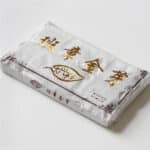 2013 Golden Buds Ripe Pu-erh Brick
2013 Golden Buds Ripe Pu-erh Brick
| 5 star | 100 | 100% |
| 4 star | 0% | |
| 3 star | 0% | |
| 2 star | 0% | |
| 1 star | 0% |
One of my favourite pu erhs by teapro! Such a rich complex flavour!
One of my favourite pu erhs by teapro! Such a rich complex flavour!
| SIZE | 1 pc, 5 pcs, 10 pcs, 50 pcs |
|---|
Related products
-
Golden tipped black tea cones dianhong pagoda
£6.00 – £68.00Price range: £6.00 through £68.00-
- 12g
- 120g
- 240g
-
-
“Herbalism” Herbal Tea Gift Box
£19.50 – £36.50Price range: £19.50 through £36.50Rated 4.83 out of 5-
- just tea
- +infuser glass
-
-
Chawan Matcha Bowl
£9.95Rated 5.00 out of 5 -
-
Supreme Silver Needle White Tea
£6.00 – £95.00Price range: £6.00 through £95.00Rated 5.00 out of 5-
- 12g
- 50g
- 100g
- 500g
-

